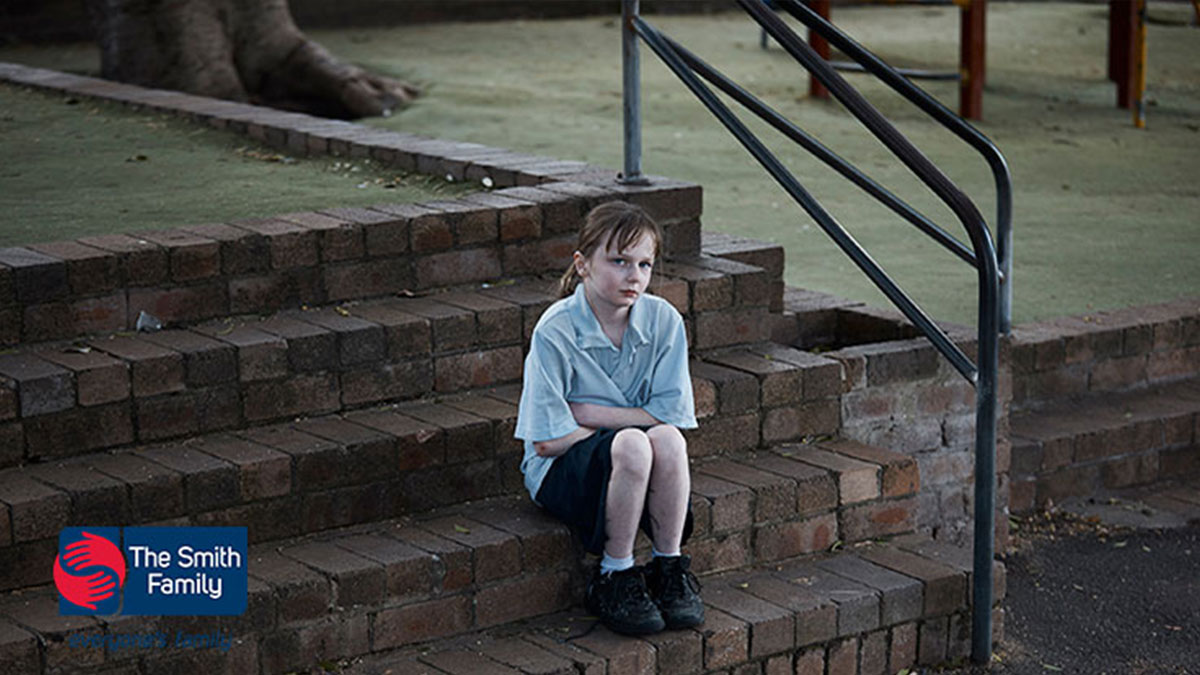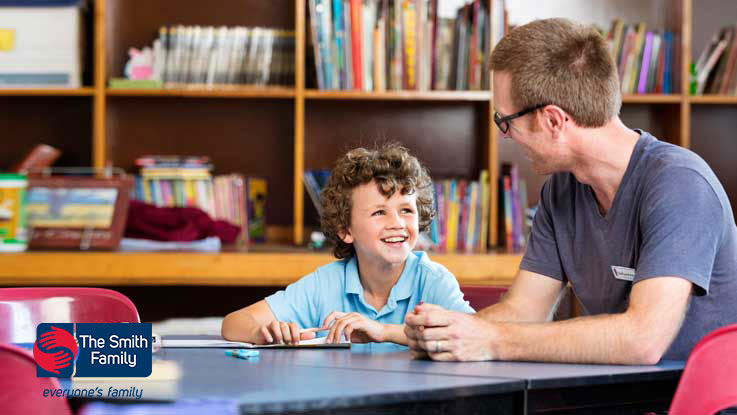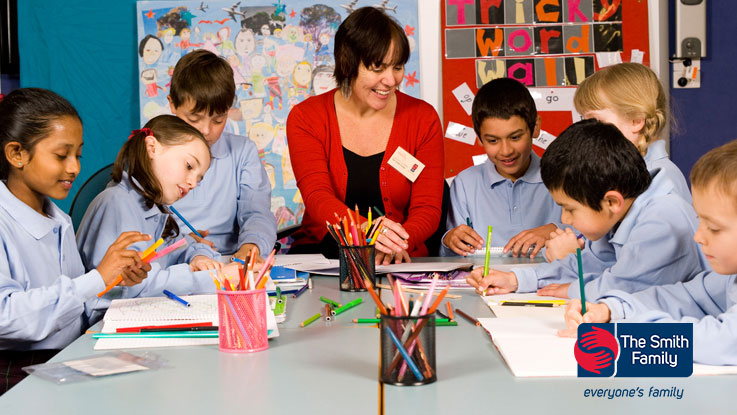


Smith Family Foundation Review
InformationWho They Are
The Smith Family Foundation is an independent children’s charity helping disadvantaged Australian children to get the most out of their education, so they can create better futures for themselves.
They are Australia’s largest national education-oriented charity.
Their learning support and mentoring programs help children in need to fit in at school, keep up with their peers, and build aspirations for a better future for themselves.
Their Work
The foundation believes that education has the power to change lives and break the cycle of disadvantage.
Lisa O’Brien, Smith Family CEO, says that at the Foundation they “truly believe supporting a child’s education is the best way to help break the cycle of disadvantage. By giving disadvantaged children and young people the support and resources they need to achieve their full potential, our impact will have a lasting effect on those we help today, and for generations to come.
“One in six Australian children and young people living in poverty need our support to make the most of their education. I urge you to explore our website to learn more about this important issue, our programs, and how you can make a difference.” she adds.
Current Initiatives
The Smith Family delivers Learning for Life programs across 91 Australian communities, often out of the local school.
Aboriginal and Torres Strait Islander Programs
Every year the Smith Family Foundation supports over 8,822 Aboriginal and Torres Strait Islander children
The Foundations says, “our work in Aboriginal and Torres Strait Islander communities aims to keep children, families and communities engaged in learning by providing positive educational experiences, opportunities to grow life skills and access to role models.”
“With a focus on working together with communities, schools and government, we strive to be culturally responsive, effective and holistic,” they add.
Arts Program
Children from financially disadvantaged backgrounds often lack the opportunity to get involved in opportunities that supplement classroom learning and stimulate personal growth.
“There is a growing body of evidence that the development of non-cognitive skills in children and young people, such as motivation and self-confidence, can influence schooling and employment achievements,” says the Smith Family Foundation.
“We place value on providing extra-curricular opportunities to disadvantaged students to help support their social and emotional development and build on their emerging talents and interests.”
Community Programs
One in five children are developmentally vulnerable in one or more key areas when they start school.
The Smith Family Foundation believes their work is helping to improve the wellbeing of disadvantaged children and to change the future for young Australians and their families living in these communities.
“We partner with government, schools, families and other service providers to improve educational outcomes for children and create and support long-term change in communities entrenched in disadvantage,” they explain.
Financial Programs
The Foundation provides programs to help those living in disadvantage improve their financial knowledge and confidence.
Numeracy Programs
Children in Australia’s most disadvantaged communities start school already behind in maths, and generally stay behind throughout the school years.
According to the Foundation, “numeracy is a foundation skill for successful participation in our society – individuals need it for budgeting, taking medication and employment. We support parents and early years educators in developing the maths skills of the children in their care so that they can establish the necessary foundation skills.”
Technology Programs
The Smith Family Foundation provides disadvantaged children and young people the critical skills, access and equipment they need to succeed in their school life.
According to the Foundation, research and evidence has shown that financially disadvantaged children and their families face barriers of social isolation, poor academic performance and unemployment as a result of a lack of understanding and limited, or no, access to information and communication technology.
“Having a computer and internet access within the home is now critical part of school life. Without these opportunities children may not be getting the most out of their education,” they add.
Work Experience Programs
Young people from disadvantaged backgrounds who may be struggling at school often lack the motivation, encouragement and aspirations to explore their future career options and potential job opportunities.
The Foundation provided Work Experience programs to help disadvantaged students explore their future career options.
Mentoring Programs
The Foundation’s Mentoring programs aim to provide disadvantaged students the encouragement they need to complete their higher education.
“Many disadvantaged students are the first in their family to go on to tertiary studies.
For students without a positive role model in their family network, mentoring provides the encouragement they need to build aspirations for their future and be motivated to complete their tertiary education,” they say.
Literacy Programs
The Foundation Literacy Programs focus on giving disadvantaged children resources and support to achieve reading standards: “Without books to stimulate learning in the home, or encouragement from a parent who is aware of its importance, disadvantaged children often don’t have the same shared reading time with their parents or carers as their more advantaged peers.”
Learning Clubs
Learning Clubs provide a safe and supportive out-of-school learning environment where primary or secondary students can participate in activities that develop their academic skills.
Clubs usually run in terms two and three each year, and children attend at once or twice a week at no cost.
Learning for Life
This program provides holistic, long-term support for disadvantaged Australian children throughout their education.
According to the Foundation, “adopting an evidence-based approach to our work allows us to develop and deliver programs and support that responds effectively and efficiently to the needs of the disadvantaged children, young people, families and communities we help. Research and evaluation helps us to measure the outcomes and assess the effectiveness of our support and programs”
Recent Wins
- 49,735 Australian students are helped through our Learning for Life sponsorships.
- 206,836 disadvantaged children and their families received our support by participating in programs last year.
- 10,691 students receiving aLearning for Life sponsorship identify as Aboriginal and Torres Strait Islander peoples.
During the Financial Year 2019, their programs achieve the following results:
- 58% of child who participated in the Let’s Count program could count a collection of at least 20 items, compared to 37% of children who did not participate.
- 96% of parents who participated in the Let’s Read program agreed that they now have more ideas about how to read, talk and sing with their child.
- 97% of students who participated in the student2student reading program improved their reading. 90% of students reported that they now find reading more enjoyable.
- 87% of students said Learning Clubs helped them do better in class. 85% agreed that going to a club makes them try harder at school.
- 85% of students who participated in the iTrack mentoring program agreed that their mentor helped them understand more about how they can reach their career goals. 89% agreed that their mentor helped them feel more confident about their future job, career and study options.
- 79% of Certificate 1 Financial Services participants attained the Certificate 1 qualification. 85% reported that they are confident making financial decisions.
- 87% of Saver Plus participants were saving the same amount or more, three to seven years after completing the program.
Ways to Donate
You can donate here to help young Australians in need by providing access to our Learning for Life education support programs.
“We are truly grateful to the many thousands of caring Australians who support the work we do for families in need. Without your generosity, our work in 91 communities across Australia simply wouldn’t be possible” Lisa O’Brien, Smith Family Foundation CEO.
Child Sponsorship
You can also sponsor a child to give them the life-changing support they need to catch up, keep up and fit in at school.
Find You Perfect Charity
Do our quiz to get matched to your perfect charity match. Alternatively, go back to our list of charities to continue reading about their work, mission and how they help.
Social links
https://www.facebook.com/TheSmithFamilyAustralia
https://twitter.com/SmithFamily_org
https://www.youtube.com/user/TheSmithFamily1922
https://www.linkedin.com/company/the-smith-family
https://www.thesmithfamily.com.au/stories/family-news/subscription-form
